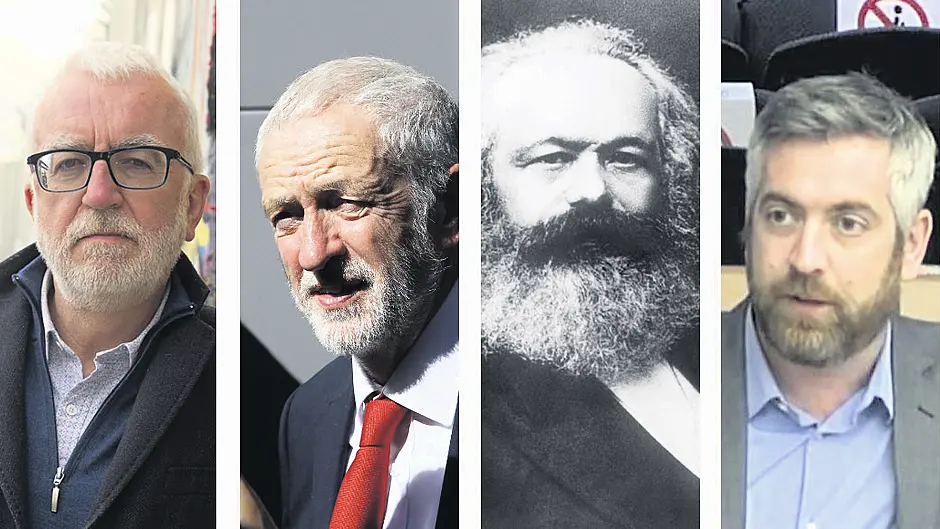A bewhiskered Peadar King wonders if a man’s political leanings can be predicted by their love of facial hair – or distaste for it. He looks to the past, the present, and even the future
AS a child I always thought that when the first opportunity presented itself, I would grow a beard.
And I did. At seventeen. A premature decision. One that was unmade when the realisation finally dawned following much prompting from my parents and siblings, that it just didn’t work.
And over the years, I have made and unmade that decision. It was, I think, although I would not have used those words at the time, a form of performative masculinity.
On a whim and I’m not too sure if there is any cause and effect relationship here, but shortly after my arrival in West Cork, I shaved my beard. And I am now clean-cut.
To beard or not to beard is not a frivolous issue as some might assume.
In 2014, three Australian academics published a paper titled Negative frequency-dependent preferences and variation in male facial hair. Essentially this is what they held.
In situations where few men wear beards women find men who wear beards more attractive. And conversely, women find clean shaven men more attractive where wearing beards is the norm.
Who says academic research is not at the cutting edge? Perhaps my decision to opt for a clean-shaven face was misjudged after all.
While the sexual allure that flows from the decision to beard or not to beard is a subject I am not indifferent to, and it certainly ranked quite high to my seventeen year-old self, it is the politics of bearding that I think has been under-considered in political discourse.
Almost without exception, beards have been the preserve of the political Left. None more so that the great socialist architect Karl Marx.
If his writings were epic, and they were, so too was his beard. Big and bushy. His arch-disciple Vladimir Lenin opted for a much tamer affair.
A goatee rather than a full beard, perhaps not as much a disciple after all. Fidel Castro was much more in line with Marxist doctrine when it came to facial hair. His too was big and bushy.
Britain’s Jeremy Corbyn, arguably the most left wing of all British Labour Party leaders, was the only one to wear a beard, bar its founder Keir Hardie.
Back home, Frank Cluskey and Prionsias de Rossa, both decidedly left-leaning politicians wore beards.
Dick Spring, Cluskey’s successor as leader of the Labour party settled for a moustache perhaps indicating his allegiance to the Left was less than wholehearted. His successor Ruairí Quinn’s beard was so skimpy and so sculpted it hardly constituted a beard at all.
Their successors Eamon Gilmore, Brendan Howlin and Alan Kelly forswore any facial hair confirmation, if indeed confirmation were needed, of the right-wing drift of the party. On these matters, current leader Ivana Bacik gets a pass.
In the history of the constituency of Cork South West, was no bearded candidate elected a TD in the first 100 years of Irish democracy – perhaps the clearest indication of the hold of the right on the constituency? Ah, but what about a bearded Denis O'Donovan, elected in 2002?
Labour TD Michael Pat Murphy (1951-1981), once accused by an opponent that if elected to government he and his Labour party allies would throw priests into prison and have them tortured, a most unlikely scenario I would have thought given he forswore any facial hair. The bearded left was not for him.
Then came the seismic election of 2020.
Civil war politics dissolved as the old enmities between the two parties who governed the state for almost 100 years fell away. Or so it would appear.
And here in Cork South West we had our own seismic election. The result: the first bearded TD since Denis O'Donovan.
Of course to many, emphasising the beard as a key variable in political discourse might seem misplaced, a distraction, even silly. Clearly, a view to which I do not subscribe.
Irrespective of its political significance as an indicator of one’s place on the left-right political spectrum, of one thing I am certain: when it comes to performative masculinity, the beard is no small matter.
Just ask my seventeen year-old self.










